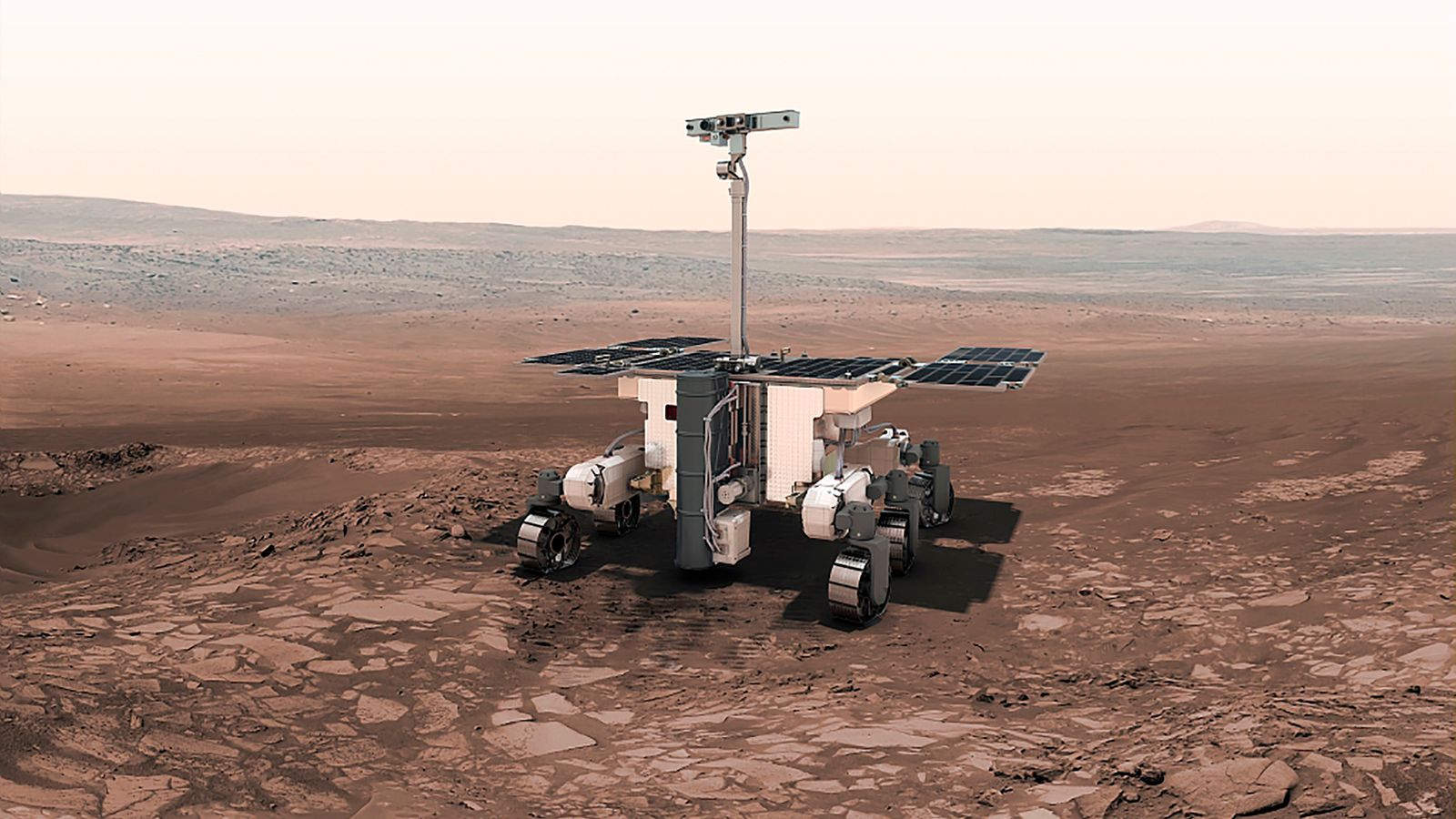The launch of a British-built rover to look for traces of life on Mars has been postponed because of Russia’s invasion of Ukraine.
The robotic Rosalind Franklin rover was due to be launched on a Proton rocket later this year as part of the European-Russian ExoMars project.
But the European Space Agency (ESA) said that joint mission activity had been suspended due to the “present impossibility” of co-operating with Russia.
The director general of the agency, of which the UK is a part, is to carry out a “fast-track industrial study” of alternative options for completing the Mars mission, ESA said in a statement.
Russia’s contribution to the mission includes the rover’s landing platform and several scientific instruments, as well as the heavy-lift rocket for the launch.
The future of the mission is now uncertain as ESA would need to replace the Russian technology and find a new launch vehicle at considerable cost.
Mars mission: NASA moves closer to bringing rock samples collected by Perseverance rover to Earth
Water seen below polar ice cap on Mars may be optical illusion, scientists say
Mars Perseverance Rover: Images confirm Jezero crater was ancient lake – and may hold traces of life, say scientists
The mission had already been delayed as a result of the COVID pandemic, but political tensions between Roscosmos, the Russian space agency and its Western counterparts have been growing since the Ukraine invasion.
Dmitry Rogozin, the Roscosmos chief, recently withdrew Russian technicians from the European launch facility in French Guiana and threatened to crash the International Space Station on the US.
Four ESA satellite launches that were due to take place on Russian Soyuz rockets have also been postponed.
ESA said in its statement: “We deeply deplore the human casualties and tragic consequences of the aggression towards Ukraine.
“While recognising the impact on scientific exploration of space, ESA is fully aligned with the sanctions imposed on Russia by its Member States.”
Significantly, ESA is currently collaborating on its first-ever mission with China.
A key component for a space weather satellite is due to be shipped to Shanghai in the coming days.






















